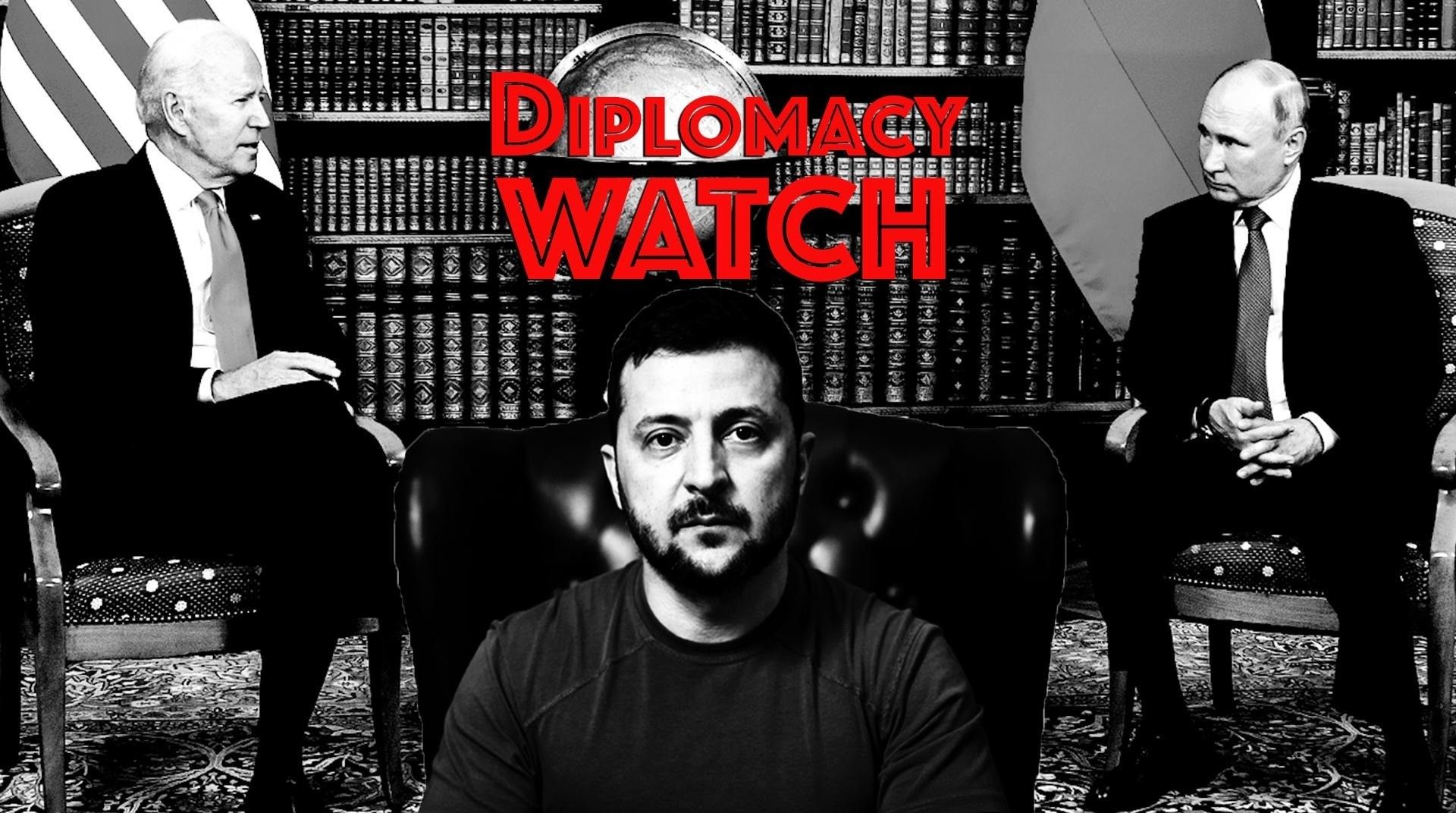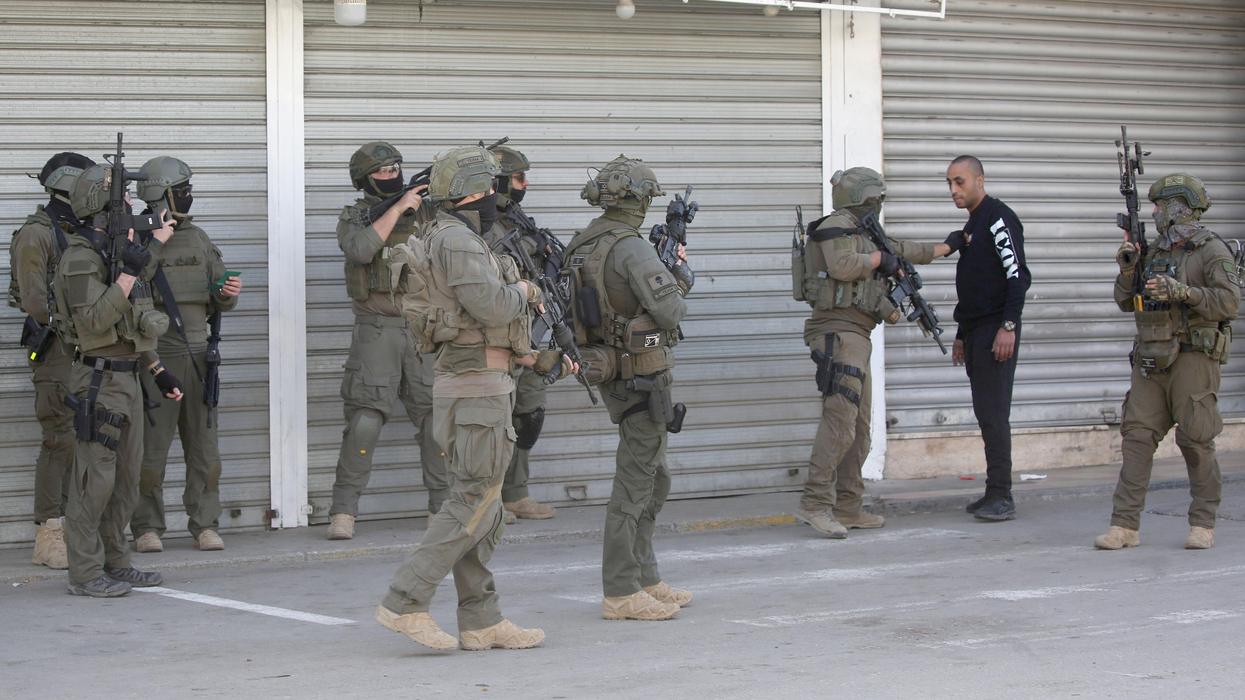Ukraine would consider inviting Russian officials to a peace summit to discuss Kyiv’s proposal for a negotiated end to the war, according to Andriy Yermak, the Ukrainian president’s chief of staff.
“There can be a situation in which we together invite representatives of the Russian Federation, where they will be presented with the plan in case whoever is representing the aggressor country at that time will want to genuinely end this war and return to a just peace,” Yermak said over the weekend, noting that one more round of talks without Russia will first be held in Switzerland.
The comment represents a subtle shift in Ukrainian messaging about talks. Kyiv has long argued that it would never negotiate with Russian President Vladimir Putin, yet there is no reason to believe Putin will leave power any time soon. That realization — along with Ukraine’s increasingly perilous position on the battlefield — may have helped force Kyiv to reconsider its hard line on talking with the widely reviled Russian leader.
Zelensky hinted at a potential mediator for talks following a visit this week to Saudi Arabia. The leader “noted in particular Saudi Arabia’s strivings to help in restoring a just peace in Ukraine,” according to a statement from Ukrainian officials. “Saudi Arabia’s leadership can help find a just solution.”
Russia, for its part, has signaled that it is open to peace talks of some sort, though both Kyiv and Moscow insist that any negotiations would have to be conducted on their terms. The gaps between the negotiating positions of the two countries remain substantial, with each laying claim to roughly 18% of the territory that made up pre-2014 Ukraine.
Ukraine’s shift is a sign of just how dire the situation is becoming for its armed forces, which recently made a hasty retreat from Avdiivka, a small but strategically important town near Donetsk. After months of wrangling, the U.S. Congress has still not approved new military aid for Ukraine, and Kyiv now says its troops are having to ration ammunition as their stockpiles dwindle.
Zelensky said Sunday that he expects Russia to mount a new offensive as soon as late May. It’s unclear whether Ukrainian troops are prepared to stop such a move.
Even the Black Sea corridor — a narrow strip of the waterway through which Ukraine exports much of its grain — could be under threat. “I think the route will be closed...because to defend it, it's also about some ammunition, some air defense, and some other systems” that are now in short supply, said Zelensky.
As storm clouds gather, it’s time to push for peace talks before Russia regains the upper hand, argue Anatol Lieven and George Beebe of the Quincy Institute, which publishes Responsible Statecraft.
“Complete victory for Ukraine is now an obvious impossibility,” Lieven and Beebe wrote this week. “Any end to the fighting will therefore end in some form of compromise, and the longer we wait, the worse the terms of that compromise will be for Ukraine, and the greater the dangers will be for our countries and the world.”
In other diplomatic news related to the war in Ukraine:
— Hungary finally signed off on Sweden’s bid to join NATO after the Swedish prime minister met with Hungarian Prime Minister Viktor Orban in Budapest, according to Deutsche Welle. What did Orban get for all the foot dragging? Apparently just four Swedish fighter jets of the same model that it has been purchasing for years. The prime minister blamed his party for the slow-rolling, saying in a radio interview prior to the parliamentary vote that he had persuaded his partisans to drop their opposition to Sweden’s accession.
— French President Emmanuel Macron sent allies scrambling Tuesday when he floated the idea of sending NATO troops to Ukraine, according to the BBC. Leaders from Germany, the United Kingdom, Italy, Poland, and other NATO states quickly swatted down the idea that the alliance (or any individual members thereof) would consider joining the war directly. Russia said direct conflict with NATO would be an “inevitability” if the bloc sent troops into Ukraine.
— On Wednesday, Zelensky attended a summit in Albania aimed at bolstering Balkan support for Ukraine’s fight against Russia, according to AP News. The Ukrainian leader said all states in the region are “worthy” of becoming members of NATO and the European Union, which “have provided Europe with the longest and most reliable era of security and economic development.”
— Western officials were in talks with the Kremlin for a prisoner swap involving Russian dissident Alexei Navalny prior to his death in a Russian prison camp in February, though no formal offer had yet been made, according to Politico. This account contrasts with the one given by Navalny’s allies, who claimed that Putin had killed the opposition leader in order to sabotage discussions that were nearing a deal. Navalny’s sudden death has led to speculation about whether Russian officials may have assassinated him, though no proof has yet surfaced to back up this claim. There is, however, little doubt that the broader deterioration of the dissident’s health was related to the harsh conditions he was held under.
U.S. State Department news:
In a Tuesday press conference, State Department spokesperson Matthew Miller said the situation on the frontlines in Ukraine is “extremely serious.” “We have seen Ukrainian frontline troops who don’t have the ammo they need to repel Russian aggression. They’re still fighting bravely. They’re still fighting courageously,” Miller said. “They still have armor and weapons and ammunition they can use, but they’re having to ration it now because the United States Congress has failed to act.”
- New poll: Nearly 70% of Americans want talks to end war in Ukraine ›
- Ukraine War 'peace talks' this weekend — but Russia not invited ›
- Biden's role in Ukraine peace is clear now ›
















